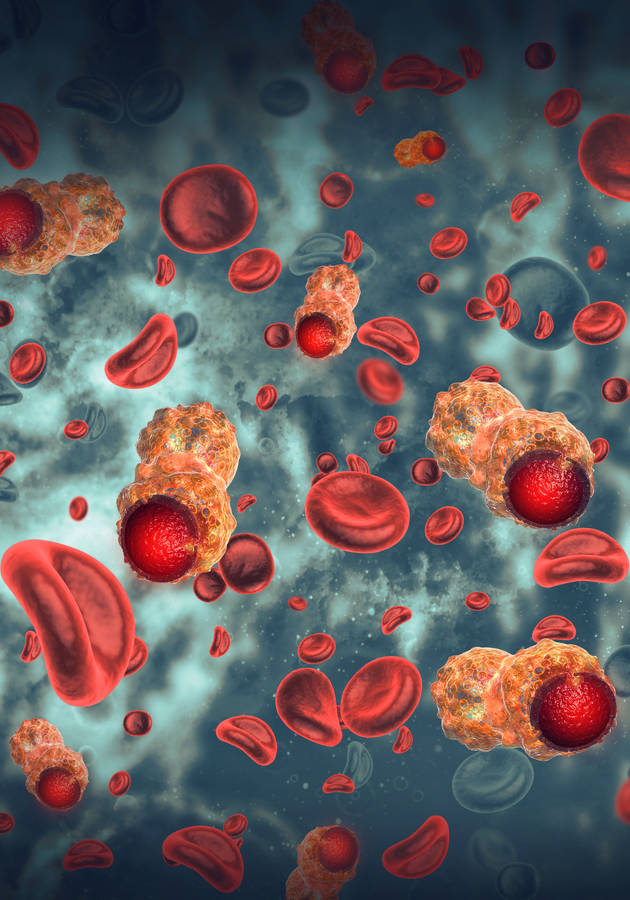As you can infer from the subtitle, “The Blank Slate” is not one of your skim-on-the-beach or speed-read-in-your-bed just-to-pass-the-time-or-fall-asleep books. After all, Steven Pinker’s objective in it is to challenge most of the modern views on what makes us human and to demonstrate that, due to modern politics and sociology, most of us are in denial when it comes to the basic building blocks of the human nature.
In a nutshell – as should be only obvious according to Pinker – these building blocks are the ones we’d describe as the genes. Pinker’s argument goes beyond that of our genes play a large part in making us who we are and states that they have a much bigger role than upbringing.
No matter what they say, no matter what you’ve been taught, it’s critical that you recognize this. Sounds scary? Pinker doesn’t think so. And he explains why in “The Blank Slate.”
The tabula rasa model
First and foremost, Pinker attempts to demonstrate to which extent human behavior is shaped by evolutionary and psychological adaptations refuting the theory that we are all born as a tabula rasa. In other words, as far as the author is concerned, nature beats nurture by a country mile. And he provides lots of evidence to corroborate this claim.
Human evolvement theories
In the first part of “The Blank Slate,” Pinker introduces us to the three most influential theories about human nature ever developed and then examines their flaws.
The blank slate: empiricism
As the title reveals, this explanation of human nature is the one Pinker is interested in the most. It is also one of the earliest ones, first posited by John Locke in “An Essay Concerning Human Understanding,” back in 1690. According to Locke, there is no inherent human nature: the mind is nothing more but a blank slate at birth (tabula rasa in Latin) and, throughout life, experience fills it with relevant information and data.
In other words, if you were switched at birth and raised by a different set of parents, you would have developed into a completely different person. In 2001, the discovery of the human genome containing several times fewer genes than what neuroscientists and geneticists initially believed made blank slate defenders think that they won a resounding victory. At least as far as they are concerned, our complex minds are developed gradually, via two powerful mechanisms: connectionism (the neural networks grow connections – and that’s how we learn) and neural plasticity (the brain changes its form over a lifetime).
The main problems? Well, if this is the case, then why computers don’t learn as well as we do? Why are even children capable of recognizing that both Garfield and your neighbor’s Siamese are cats, and yet the most powerful computers need millions of images to make that connection? Moreover, why do twins grow to look so much like each other even when separated at birth? More on this below.
The noble savage: romanticism
Little more than half a century after John Locke developed the tabula rasa model of humans – namely, that we are products of our experiences – Jean-Jacques Rousseau came up with yet another theory, the idea of the Noble Savage. In his “Second Discourse,” Rousseau argued that prehistoric humans would have completely obliterated each other if their minds were blank slates and acted in that famous Hobbesian war-of-all-against-all manner.
Consequently, the first humans must have been peaceful and uncompetitive, because, in addition to the fact that there weren’t that many of them, they were also living in a world, which provided everything in abundance. It was the civilization that made everything worse, promoting greed and violence as a way to deal with the scarcity of resources.
Few modern authors – such as James Suzman, for example – still believe that Rousseau was right. However, several studies have shown that people are naturally inclined to do some things because they seem to inherit them – aggression and violence included.
The ghost in the machine: dualism
The third theory of human nature was first devised as a cogent theory by René Descartes, even though it is as old as some of the earliest religious and philosophical thinkers. In Descartes’ opinion, we are composed of two different systems, one of which is our physical, material body, and the other, which is our mind.
And as much as the former can be explained in terms of simple physics and mechanics, our mind is just too complicated to be translated into terms ordinary humans understand, because, well, it’s beyond our rational comprehension. Modern science backs some of these claims, referring to this latter part as the adaptive unconscious. However, even this division fails to explain why separated twins often grow to prefer the same brand of cigarettes!
Fear and loathing
If a few simple experiments with twins are enough to put a question mark next to these three prevalent theories, then why are they still resiliently alive? Pinker thinks he knows why. It isn’t because of science, he says; it is because of politics and religion, which – as you should be aware by now – are the two least scientific aspects of human existence.
Simply put, the ideology of the political left would crumble to pieces if human nature couldn’t be explained in terms of the blank slate or the noble savage theory. Contrariwise, the political right and many religious groups prefer “the ghost in the machine” model of human nature, because, otherwise, their notions of the world would prove to be scientifically faulty.
Consequently, as soon as modern researchers started pointing out that the natural human state is a bit more complicated than what Locke and Rousseau believed, radical Marxists attacked the ideas as “discriminatory.” Because if humans are biologically different, and if violence is in their blood, then the idea of a utopian society where everyone is equal is, well, utopian. Even more, it would be fairytale-like, having nothing to do with reality.
On the other hand, if we think and feel due to nothing more than some chemical processes happening inside our brains, and if the mind isn’t able to live without the body, then most of the religions of the world make no sense whatsoever. In conclusion, it seems that we hold on to certain beliefs of what human nature is like due to our fears that if it is any different, the world should collapse.
Human nature with a human face
In the third part of “The Blank Slate,” Pinker examines further these fears, deducing that they all boil down to four fundamental fears.
The fear of inequality
The Blank Slate theory, admits Pinker, is morally appealing – after all, if every single difference is the result of nurture and upbringing, then we can take action to eradicate inequality. The Blank Slate serves as “a guarantor of political equality;” dismissing it, its defenders say, would inevitably lead to three evils:
- Prejudice: “if groups of people are biologically different, it could be rational to discriminate against the members of some of the groups.”
- Social Darwinism: “if differences among groups in their station in life – their income, status, and crime rate, for example – come from their innate constitutions, the differences cannot be blamed on discrimination, and that makes it easy to blame the victim and tolerate inequality;”
- Eugenics: “if people differ biologically in ways that other people value or dislike, it would invite them to try to improve society by intervening biologically – by encouraging or discouraging people’s decisions to have children, by taking that decision out of their hands, or by killing them outright.”
According to Pinker, all of these are non sequiturs, since “equality is not the empirical claim that all groups of humans are interchangeable; it is the moral principle that individuals should not be judged or constrained by the average properties of their group.”
The fear of imperfectability
Now, if our genes influence our behavior to such a great extent, and if violence and immorality are natural in this sense, then how are we supposed to go on living? “The dread of a permanently wicked human nature takes two forms,” clarifies Pinker. The first form is rather practical: if human nature is unchangeable, then it’s a waste of time to try and change some individuals.
The second is even deeper: if it comes naturally to someone to rape someone else, then, by which measures, have we decided that this individual is fit for jail? Pinker states that it isn’t so easy if something is natural, it doesn’t mean that it’s good or that it must be tolerated. Because just as natural as it comes to the rapist to rape someone, it comes to the raped one to defend themselves and not wanting forced sexual intercourse. That’s why we have a society: to decide which of the things that come naturally to some people can be tolerated and which should not.
The fear of determinism
The fear of imperfectability is related to the fear of determinism, which is possibly the shallowest and least related one to the blank slate. The “gaping existential anxiety: that deep down we are not in control of our own choices.” Now, if that’s the case, then why shouldn’t I use it to excuse my behavior, no matter how immoral they are?
The answer is much the same as the one above: because we’re talking about two different systems, muddled by the Romantic idea that what’s natural is good. Not only this most certainly is not the case, but it should also influence not one bit our legal and penitentiary institutions. Explaining someone else’s behavior doesn’t excuse it. It makes no difference whether the explanation is biological or philosophical.
The Fear of Nihilism
“The final fear of biological explanations of the mind,” writes Pinker, “is that they may strip our lives of meaning and purpose.” Everything is permitted in a world with God as well; only, in that case, it is to a selected number of people (the ones who interpret God’s message better than the rest); after all, both Hitler and the terrorists who crashed into the World Trade Center believed they were carrying out a divine mission.
There is a difference between “ultimate causation (why something evolved by natural selection)” and “proximate causation (how the entity works here and now).” Pinker explains that “sometimes the most selfish thing a gene can do is wire unselfish motives into a human brain—heartfelt, unstinting, deep-in-the-marrow unselfishness.”
Know thyself
For classical economists, for example, humans are still those rational self-interested people who base all of their decisions on whether they benefit them personally; utopian socialists, on the other hand, are even surer that humans are biologically nothing less than noble savages who’d much rather live in peace than die by violence.
Science has conclusively shown, however, that neither of these views is accurate: we are neither selfish egoists nor selfless altruists. We are something in between. We prefer to live in harmony with others because, evolutionary, this has helped us survive; misanthropes never stood a chance in ancient societies, and tribes thrived. However, there are limits to our desire to live in a community, and you can discover those limits if you take a look at history.
Hot buttons
Last but not least, Pinker tries to show how science can help us reach some common ground about some of the most hotly debated topics in all times and all places:
- Politics. Unfortunately, it seems that a large part of our political beliefs is in our blood: twins, separated at birth, share around 60% of their political beliefs; the rest 40% make changes; education may help.
- Violence. Once again, violence is hereditary, and it is an inseparable trait of human nature; prehistoric societies were violent, and no matter how much we progress, future societies will be violent as well; interestingly enough, economic equality seems to stifle violence.
- Gender. Male and female brains aren’t interchangeable: they are different. While women are better at spelling, reading body language and matching shapes, men have a stronger capacity to manipulate 3D objects mentally, but science has found no reason whatsoever to believe that one gender is superior than the other.
- Children. According to Eric Turkheimer, three things influence how children turn out to grow up in the end: their genes, their family environment, their unique environment (friends and neighborhood). We don’t know the ratio, but these are the estimates: genes: 40%, family: 10%, unique environment: 50%.
- The Arts. Art is in our nature – in the blood and the bone, in our brains and our genes. However, we seem to be evolutionarily programmed to prefer traditional art and beauty to their modern counterparts; art, in other words, is not in decline; conventional art is – and this has to be remedied as soon as possible.
Final Notes
Nominated for the 2003 Aventis Prize and a finalist for that year’s Pulitzer Prize, “The Blank Slate” has been one of the most talked-about books of the past two decades. Like it or hate it, chances are you’ll be a much richer and smarter human being once you scan through its pages.
12min Tip
One thing is for certain: there’s no absolute truth to human and social behavior. If you are open to different theories, you’ll likely come closer to the truth.





























